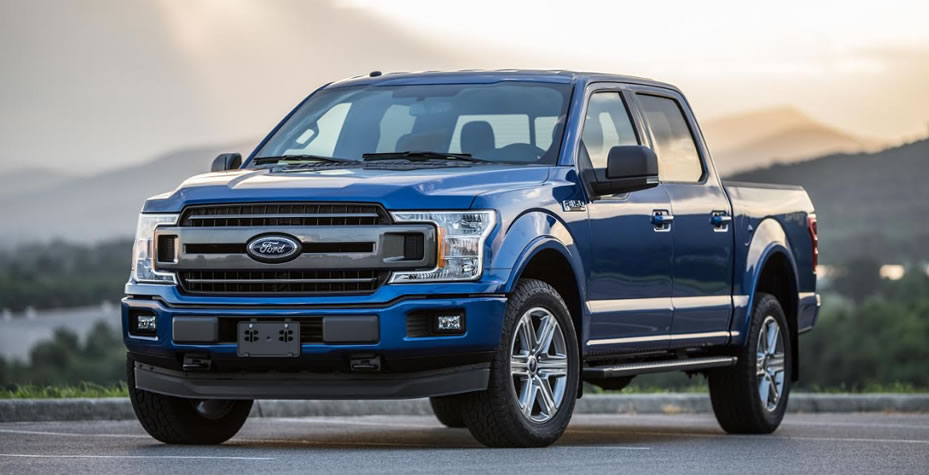
One of the essential selling points for new cars is their manufacturer’s warranty. When and if some part breaks or fails, all an owner has to do is take the vehicle to an approved repair facility to get it fixed.
When a repair is covered by a factory warranty, there’s no out-of-pocket cost for the repair, and the owner can go about their business. They may even get other perks, such as rental reimbursement while their car is at the shop and a free detailing, too.
For people who buy used vehicles, whether they prefer older cars or just can’t afford a new one, that factory warranty is usually expired. This is why you may have heard that owning a used car can be more expensive than a new one. With no coverage, you could be on the hook for an engine replacement worth thousands of dollars.
Even without that worst-case scenario, a used vehicle might cost you around $400 per year in repairs.
But older vehicles with expired warranties don’t necessarily have to suck money from your wallet every time you go to a mechanic. With an aftermarket vehicle service contract, you can restore many — if not, perhaps more — coverage benefits than what the vehicle had from the factory.
So if you’re searching, “What does a vehicle service contract cover?” or some similar phrase, it’s time to find out.
What Is a Vehicle Service Contract?
A vehicle service contract or agreement acts much the same as a factory warranty, but instead of being a product from the car’s manufacturer, the coverage is from a third-party company.
You may have heard them referred to as “extended warranties,” and while this description does give a general idea of how they work, technically, “extended warranties” are only available from the manufacturer. As the name implies, it’s an extension of the warranty the vehicle already had.
Vehicle service contracts, since they are from outside agencies, aren’t backed by any automaker, but they still provide peace of mind for owners of older vehicles. When purchasing such a contract, a vehicle owner can select the length of the contract while getting coverage for more mileage, usually for more than what the vehicle manufacturer offered.
For example, while Toyota’s maximum term limit is 10 years and 125,000 miles, protection through CarShield offers coverage for up to 250,000 miles!
What Does a Vehicle Service Contract Cover, Exactly?
The details of a vehicle service contract depend on the specific contract someone chooses to buy.
Perhaps the purchaser only needs a powertrain service contract. This contract would protect against major powertrain failures, including parts such as the engine, transmission, drive axle, and water pump.
It would not, however, cover any issues with the electrical system, hybrid batteries, suspension, or any other parts.But it’s the customization options that make vehicle service contracts desirable. Perhaps a buyer only wants to cover the powertrain. Alternatively, they may want to get additional coverage for every system in the car and add coverage for corrosion or perks such as roadside assistance.
Service contract providers have different tiers of coverage, usually with labels such as silver, gold, and platinum, that provide increasing levels of protection for more of a car’s parts.
What It Doesn’t Cover
“What does vehicle service agreement cover?” is a question you may ask a search engine, and usually, you’ll get answers about vehicle parts and enticing add-ons. But remember, these agreements won’t cover absolutely everything, even at the highest tier.
Consumable items and regular servicing will almost universally be the responsibility of the vehicle owner. These include:
Warranties and service agreements cover unexpected mechanical failures, such as an alternator going bad on its own or an engine that blows a head gasket.
Service contracts also will not cover damage from accidents or modifications. Insurance protects vehicle owners in case of a wreck, and modifications that cause damage will generally void a warranty.
Also, contracts will provide coverage for repairs, not upgrades. If you want to add massaging seats, cooler wheels, or a bigger engine, those items will require your own money. And remember, some modifications may void your coverage.
Who Will Benefit From a Vehicle Service Contract?
So why would you want a vehicle service contract? There are several situations where it’s beneficial.
1. If Your Warranty Has Expired
Cars last so long these days with their excellent rust-proofing and 10,000-mile oil change intervals, and they can easily outlast their warranties. Rather than getting rid of a vehicle you like just because the warranty elapsed, why not continue driving it with factory (or better) protection?
2. If You Want Better Coverage
Factory warranties, even extended ones, don’t always have the comprehensive protection you need. Perhaps there are parts the warranty won’t cover or services, such as roadside assistance, the warranty won’t provide. In this case, a more inclusive aftermarket service agreement may be the better option.
3. If Your Car Is Expensive to Repair
Driving a high-end luxury vehicle is an otherworldly experience. The comfort, smoothness, refinement, and incredible technology make relatively inexpensive used models seem like bargains.
However, their repair and maintenance costs can also be otherworldly. Having a service contract to absorb the blow those repairs would otherwise deliver makes owning one of these machines possible. However, before you depend on a vehicle service contract to help you out with the costs of repairs, be sure to check if your preferred provider covers your car’s year of manufacture, make, and model.
How Do Claims Get Processed?
Your service provider will generally allow you to take your car to a repair shop of your choice, though you would be wise to select a reputable, ASE-certified mechanic.
Discuss your preferred choice with your contract provider to see if they’re willing to cover repairs made by the shop in question, and definitely ask if you can get repairs done on a road trip or when you’re out of town.
You may need authorization for repairs, so ask whether they will require you to get pre-authorization. Once you have authorization, it’s usually just a matter of the shop submitting the paperwork to your service provider.
Some providers may have you pay for the repairs yourself and then provide reimbursement later, so decide whether you can handle such a delay before signing a contract. You don’t want to wait months for the money to come your way if you can’t afford to do so.
If that’s not a feasible situation for you, then a plan through CarShield may benefit you even more since covered car repair bills are paid directly to the repair facility.
Who Pays for Repairs and Parts?
Without a service contract, you do — every time. With a service contract, it’s the provider who pays. Insurance regulations dictate that providers must have enough money in the bank to handle all claims.
If you purchase your contract through a dealer, the dealer may send claims (and premiums) to an administrator. Make sure the dealer sends your premiums on time, and get it in writing that they do.
Does Coverage Differ for New and Used Cars?
Whether a car is new or used, if the factory warranty is still in place, the manufacturer isn’t concerned with who currently owns the vehicle. The coverage is identical.
Where coverage differs is when a factory warranty expires and a car owner purchases a vehicle service contract. Some factory warranties provide incentives such as “two years of free oil changes!” with the purchase of a new vehicle. Rarely do factory warranty protections/services overlap 100% with an aftermarket service contract.
The main way coverage differs has less to do with whether a vehicle is new or used but rather how used, specifically with the age or mileage of the vehicle.
Once a car is beyond the protection limit of a service provider, it’ll no longer offer coverage. This varies depending on the company, with some having a cutoff of as little as 100,000 miles or as many as 250,000.
Also, one can’t expect a used vehicle to automatically have warranty coverage the way a new car will. When someone purchases a new car, a warranty is given. When someone purchases a used vehicle, it may have warranty coverage, and it may not. Finding coverage is up to the buyer in most cases.
Find Your Ideal Service Contract Through CarShield
No one wants to get stuck paying for repairs out of pocket. Through CarShield, you get the exact protection you need, whether you want to cover just the powertrain or get even more comprehensive protection! You can even get specific protection plans made for electric cars! Contact CarShield today and let us help you find the coverage you need.








